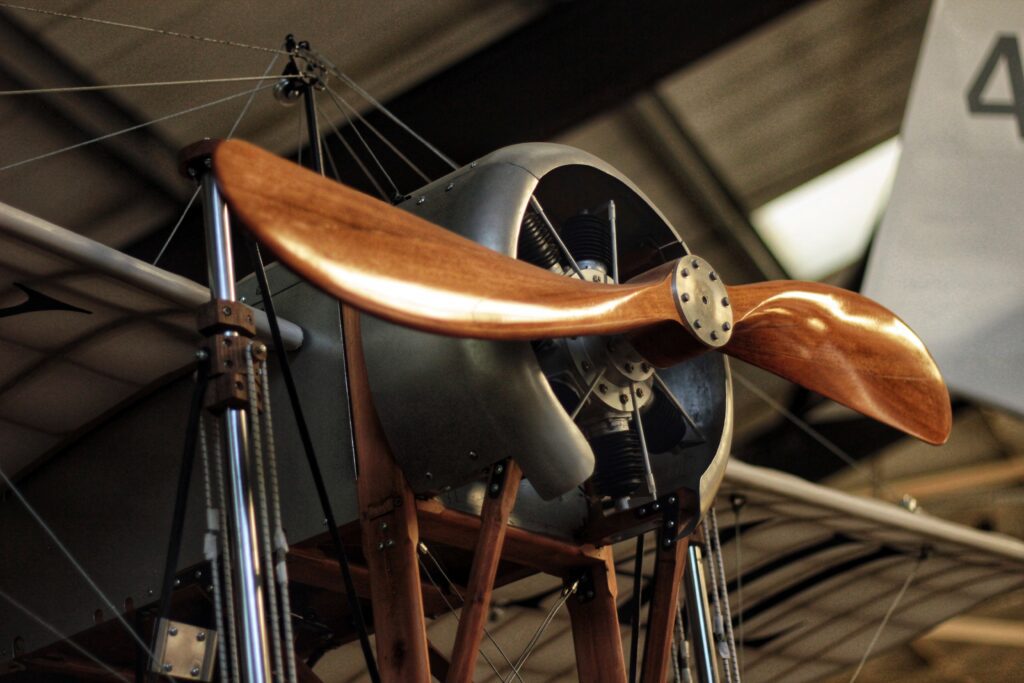
Aeronautical engineering stands at the forefront of innovation, pushing the boundaries of what’s possible in aviation and aerospace technology. From designing sleek, high-performance aircraft to developing cutting-edge propulsion systems, aeronautical engineers play a crucial role in shaping the future of air travel and exploration.
This dynamic field encompasses designing, developing, and maintaining aircraft, spacecraft, and related systems. Aeronautical engineers apply their knowledge of aerodynamics, propulsion, materials science, and structural analysis to create vehicles capable of navigating the skies and beyond.
Aeronautical engineers play a critical role in ensuring the aviation industry’s safety, efficiency, and advancement, making it an exciting and rewarding career path for those with a passion for flight and exploration.
Skills for Success in Aeronautical Engineering
Aeronautical engineers require technical skills, problem-solving abilities, and creative thinking to excel in their field. Essential skills include:
- Strong mathematical and analytical aptitude: The ability to perform complex calculations and analyze complex data is crucial for designing and evaluating aircraft systems.
- Excellent communication and teamwork skills: Aeronautical engineers often work collaboratively with other engineers, designers, and technicians, requiring effective communication and teamwork skills.
- Adaptability and a willingness to learn: The aerospace industry is constantly evolving, and aeronautical engineers must be adaptable to new technologies and methodologies.
- Passion for aviation and aerospace: A genuine passion for the field drives aeronautical engineers to push boundaries and contribute to advancements in aerospace technology.
Educational Programs in Aeronautical Engineering
Aspiring aeronautical engineers typically pursue a bachelor’s degree in aerospace engineering, which provides a comprehensive foundation in the fundamental principles of the field. During their studies, students gain expertise in various areas, including:
- Aerodynamics: Understanding the forces and interactions between air and moving objects, is crucial for designing efficient and stable aircraft.
- Propulsion: Studying the different methods of generating thrust to propel aircraft, including jet engines, propellers, and rockets.
- Structural Analysis: Analyzing the stresses and loads that aircraft experience during flight, ensuring their structural integrity and safety.
- Materials Science: Selecting and utilizing materials that are lightweight, strong, and resistant to the harsh environment of flight.
With the continuous advancement of technology and the increasing emphasis on space exploration, aeronautical engineers are poised to play an integral role in shaping the future of the aviation and aerospace industries. As the demand for faster, safer, and more efficient air travel continues to grow, the field of aeronautical engineering offers exciting opportunities for those who are passionate about contributing to cutting-edge developments in this exhilarating sector.
For aspiring aeronautical engineers, several prestigious educational programs around the world offer comprehensive coursework and hands-on training in this specialized field. Some of these renowned institutions are:
Massachusetts Institute of Technology (MIT) – Aeronautics and Astronautics Program:
MIT offers a comprehensive Aeronautics and Astronautics program that provides students with a strong foundation in aerospace engineering principles. The program focuses on areas such as flight dynamics, propulsion systems, aerospace structures, and aerospace systems design. Students have the opportunity to engage in hands-on research and gain practical experience through various projects and internships.
Georgia Institute of Technology – School of Aerospace Engineering:
Georgia Tech’s School of Aerospace Engineering offers a range of undergraduate and graduate programs tailored to prepare students for careers in the aerospace industry. The curriculum covers subjects such as aerodynamics, aerospace structures, flight mechanics, and space systems design. Students benefit from state-of-the-art facilities and research opportunities, including access to wind tunnels, propulsion labs, and advanced aerospace technologies.
University of Cambridge – Department of Engineering:
The Department of Engineering at the University of Cambridge provides a rigorous aeronautical engineering program that emphasizes theoretical knowledge and practical application. Students delve into topics such as fluid mechanics, aircraft design, propulsion systems, and aerospace materials. The program also encourages interdisciplinary collaboration, allowing students to explore the intersection of aeronautics with other engineering disciplines.
Imperial College London – Aeronautics:
Imperial College London offers a specialized Aeronautics program designed to equip students with the skills and expertise needed to address challenges in the aerospace industry. The curriculum covers areas such as aircraft design, flight mechanics, aerospace propulsion, and aerospace materials. Students benefit from industry collaborations and research partnerships that provide valuable insights into real-world aeronautical engineering practices.
These educational programs provide students with a comprehensive understanding of aeronautical engineering principles and equip them with the necessary knowledge and skills to excel in the field. Through hands-on projects, cutting-edge research opportunities, and exposure to industry partnerships, students can gain practical experience and develop a strong foundation for a successful career in the dynamic and rapidly evolving field of aeronautical engineering.
Job Prospects for Aeronautical Engineers
With the continuous growth of the aerospace industry, aeronautical engineers are in high demand across various sectors, including:
- Commercial Aviation: Designing and manufacturing commercial aircraft for passenger and cargo transportation.
- Defense and Military: Developing advanced fighter jets, drones, and surveillance aircraft for military operations.
- Spacecraft Design: Creating spacecraft for missions to explore the Earth’s orbit, the Moon, and beyond.
- Aerospace Research and Development: Conducting research to improve aircraft performance, enhance fuel efficiency, and explore new propulsion technologies with Extra-Curricular activities to qualify.
To conclude, aeronautical engineering offers a rewarding and challenging career path for individuals fascinated by the science of flight and passionate about designing vehicles that soar through the skies. With a strong educational background, transferable skills, and a passion for innovation, aeronautical engineers play a vital role in shaping the future of aerospace exploration and transportation.
Embark on a transformative higher education journey and elevate your path to new academic success with the expert guidance and personalized support of Ivy Central.
